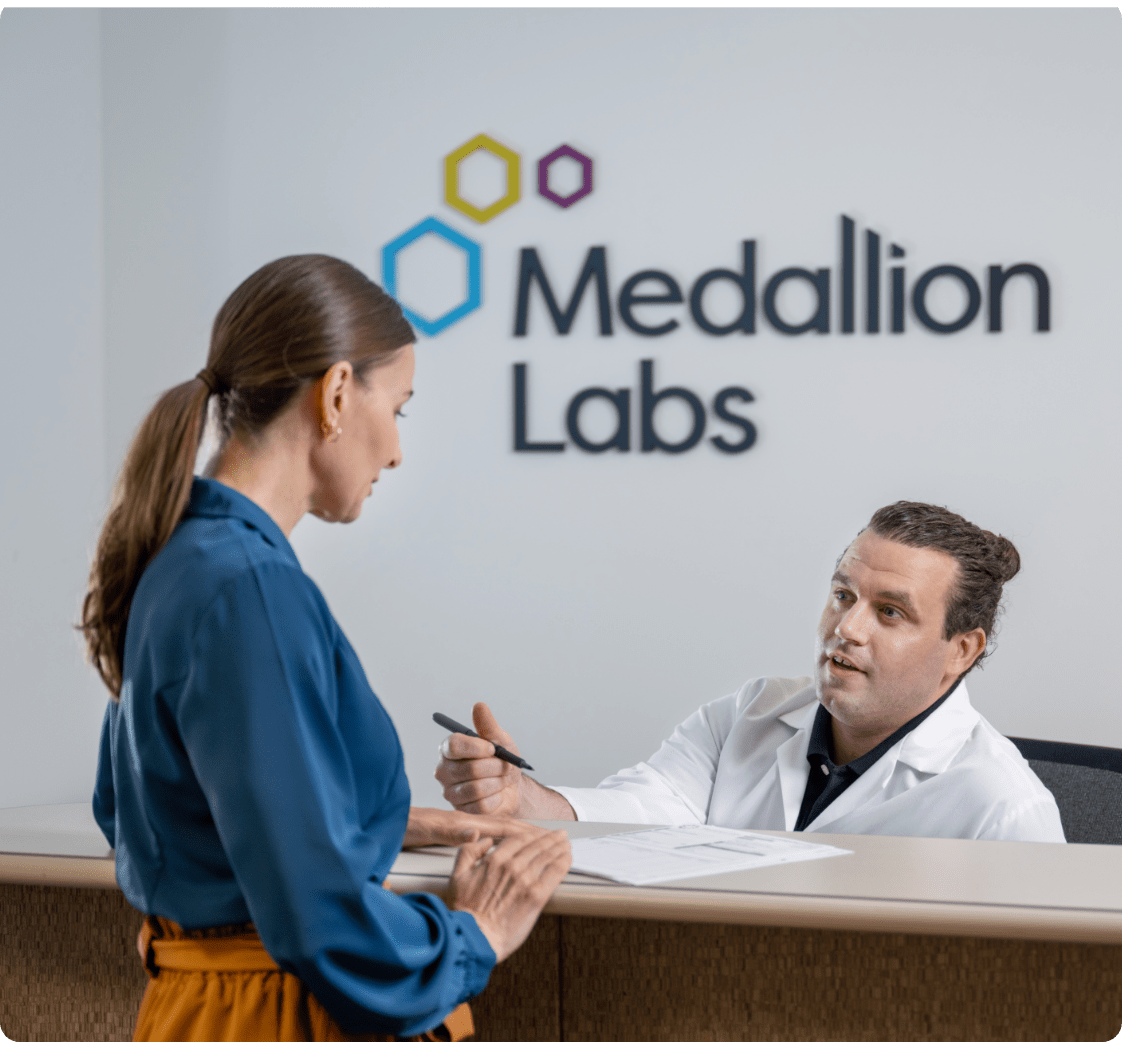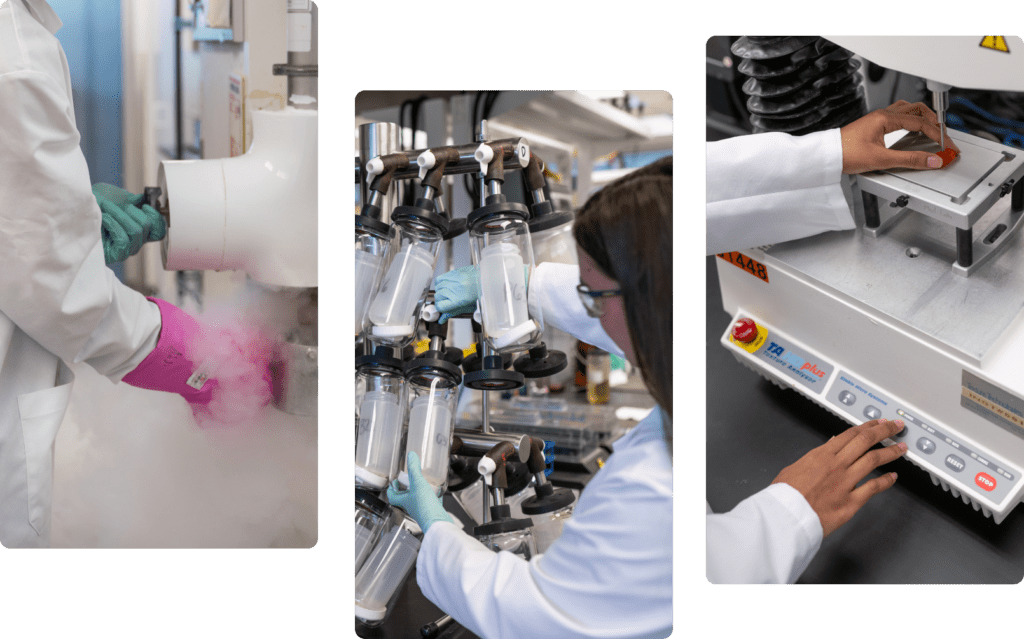Peroxide Value Test
- Price
$80 per analysis
- Turnaround time
7 – 9 Business Days
- Rush
Available

Technical data sheet
- Method description
The fat or oil sample is dissolved in a mixture of glacial acetic acid and chloroform and an excess amount of saturated potassium iodide solution is added. Peroxides in the oil oxidize a portion of the added iodide forming iodine. The amount of iodine formed is measured by titrating with sodium thiosulfate solution. The peroxide value is expressed in milliequivalents of peroxide-oxygen per kilogram of fat.
- Acceptable matrices
Fats and oils. Food products containing at least 3% fat.
- Unacceptable matrices
Lecithin, dough, dairy, egg yolks, products containing less than 3% fat
- Limit of quantitation
0.15 - 500 meq/kg fat - The limit of quantitation will vary based on the sample weight analyzed.
- Equipment
Electronic titrator
- Method reference
AOCS Official Method Cd-8-53 AOAC Official Method 965.33
- Reportable unit
meq/kg of fat – millequivalents of peroxide – oxygen per/kg
- Sample size requirements
100 g
- Information required by submitter
Please supply estimates
- Additional information
This test is ISO/IEC 17025 accredited through A2LA, Certificate # 2769.01. Peroxide value is the most commonly used assay for measuring the state of oxidation in fats and oils and its value measures the oxidative rancidity or degree of oxidation of the fat/oil, but not its stability. The peroxide value is determined by measuring the amount of iodine liberated from a potassium iodide solution at room temperature. The liberated iodine is expressed in units of milliequivalents of peroxide-oxygen per kg of fat. For this test, we will use up to 100g of product. It is necessary to extract at least 1 gram of fat from the sample to run the analysis. Therefore, the product should be at least 3% fat to make this method applicable. If your product is low fat, Hexanal testing might be a better choice for tracking rancidity.
Common Peroxide Value Test Testing Questions
Peroxide value is the most commonly used assay for measuring the state of oxidation in fats and oils, and its value measures the oxidative rancidity or degree of oxidation of the fat/oil, but not its stability.
The peroxide value is determined by measuring the amount of iodine liberated from a potassium iodide solution at room temperature. The liberated iodine is expressed in units of milliequivalents of peroxide-oxygen per 1000 grams of fat.
A lower number of peroxide value indicates a good quality of oil and a good preservation status.
The amount of peroxide value of fats indicates the degree of primary oxidation and, therefore, its likeliness of becoming rancid.
When the peroxide value is between 20 and 40 Meq/Kg, a rancid taste is noticeable.
High PV values can lead to a rancid taste in oils.
The peroxide value indicates information about the initial stage of fat deterioration and is a very important indicator used for food quality control and safety.
We make every effort to keep our methods and detection limits up to date according to the latest standards and qualifications. If you have any questions regarding the limit of detection/quantification or method references, please contact our Customer Service team at 1-800-245-5615.
Our standard turnaround time is 10 business days for most assays. There are some assays that require a longer turnaround time. We also offer a RUSH service that is half the time of the standard turnaround time of the assay at double the cost of the assay. A few assays that we provide cannot be rushed due to the nature of the test. Please check the specific assay you are interested in regarding the ability to RUSH the turnaround time.
Our food testing experts are here to help.
"*" indicates required fields

Helpful content related to Peroxide Value Test
Submit your order online and ship your samples today. If you have questions, we are always here to help.
A food testing program designed with mid-market and enterprise food and ingredient manufacturers in mind.
